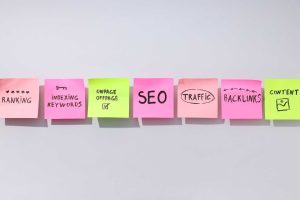Is AI the Future of SEO or a Threat? How to Stay Ahead in 2025
AI has dominated headlines in recent years, and 2025 is no different. From content generation to predictive search behaviour, artificial intelligence is transforming how we approach SEO. But is this evolution a golden opportunity or an existential threat to traditional SEO as we know it?
In this blog, we explore whether AI is a friend or foe, and how businesses can stay ahead in a rapidly evolving search engine optimisation digital landscape.
The Role of AI in Modern SEO
AI is already deeply embedded in the SEO world. From Google’s RankBrain and BERT algorithms to the growing influence of generative AI tools like ChatGPT and Gemini, search engines and marketers alike are using AI to:
- Understand search intent better
- Analyse large-scale data and SERP trends
- Automate and optimise content creation
- Deliver hyper-personalised search experiences
- Streamline technical SEO auditing
These technologies are reshaping what it means to rank well, and how users interact with search results.
Opportunity or Obsolescence?
While some fear that AI tools could render SEO services obsolete, the reality is more nuanced. AI is powerful, but it’s not autonomous. It still requires strategy, supervision, and ethical oversight. Here’s a breakdown:
Opportunities:
- Faster content production: AI can speed up content workflows by generating initial drafts, meta descriptions, and FAQs.
- Enhanced keyword research: Tools like SEMrush, Ahrefs, and Surfer SEO increasingly use AI to suggest semantic keywords and content gaps.
- Better user experience (UX): AI helps analyse behavioural data to optimise site structure, layout, and CTAs.
- Smarter personalisation: AI-powered tools can tailor website content dynamically based on user behaviour.
Challenges & Threats:
- Job displacement fears: Junior content writers, analysts, and SEOs may feel pressure as automation replaces repetitive tasks.
- Flood of low-quality AI content: Search engines are getting better at detecting “content spam”, so blindly publishing AI-generated pages is a recipe for penalties.
- Algorithm volatility: Google is prioritising “helpful content,” and AI-produced material may struggle to meet E-E-A-T (Experience, Expertise, Authoritativeness, Trust).
How to Stay Ahead in 2025
Whether AI is your competitive edge or your biggest risk depends on how you adapt. Here’s how to make sure you’re on the winning side:
1. Prioritise Human-Led Strategy
AI can support your SEO strategy, but it shouldn’t dictate it. Successful SEO in 2025 requires human insight, especially when it comes to understanding brand voice, customer emotion, and market nuances.
2. Double Down on Quality
Focus on expert-led content that meets Google’s E-E-A-T guidelines. Add original research, case studies, opinions, and experiences that AI simply can’t replicate.
3. Leverage AI Where It Adds Value
Use AI to improve efficiencies:
- Generate structured outlines
- Automate technical SEO audits
- Analyse competitor content – but always apply editorial review and human input.
4. Invest in Technical SEO and UX
AI may influence content and search, but a fast, crawlable, mobile-first website still underpins every SEO strategy. Don’t neglect the basics.
5. Stay Educated and Evolve
The best SEOs in 2025 will be learners, not Luddites. Follow industry trends, attend webinars, test tools, and understand how AI is shaping SERPs.
Final Thoughts
AI isn’t the end of SEO; it’s the next chapter. It’s changing the tools we use, the speed we work at, and the expectations users and search engines have of content. But at its core, SEO in 2025 still revolves around connecting people with answers.
Those who embrace AI intelligently, without losing sight of strategic thinking and human creativity, will not only survive, but lead.
Need help navigating SEO in the age of AI?
Get in touch today for a free Keyword Strategy assessment.




